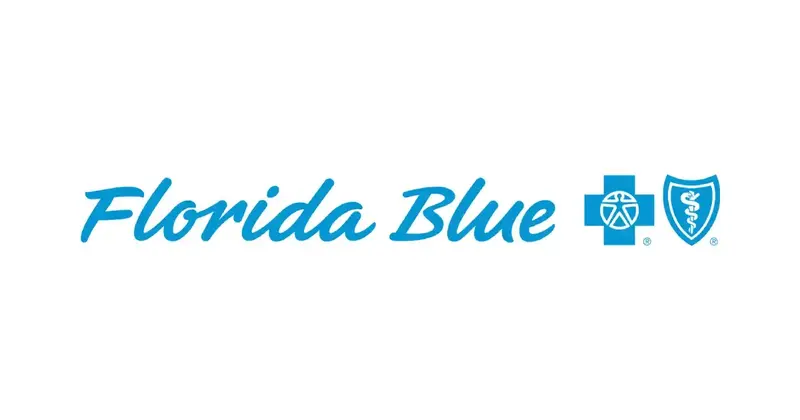“What does BCBS cover for ADHD?” We answer that question and more on this page, highlighting the spectrum of attention-deficit/hyperactivity disorder therapy, treatment options, resources, and coverage details. Learn how the tailored mental health support that Florida Blue Cross Blue Shield (BCBS) and The Sylvia Brafman Mental Health Center provide will aid your or your loved one’s route to recovery.

Florida Blue (BCBS of Florida) Attention Deficit Hyperactivity Disorder (ADHD) Therapy and Treatment
What are Some Signs of Attention-Deficit Hyperactivity Disorder?
ADHD, or Attention-Deficit Hyperactivity Disorder, is a neurodevelopmental condition often observed in childhood and can endure into adolescence and adulthood. The estimated number of children (3–17) ever diagnosed with ADHD is 6 million (9.8%), using data from 2016-2019.1 There are three main subtypes of ADHD: primarily inattentive, primarily hyperactive-impulsive, and a combined presentation that involves both sets of symptoms.
Other common signs of ADHD include a persistent pattern of inattention, hyperactivity, and impulsivity that interfere with daily functioning or development. Symptoms can present differently in adults than children. Children with ADHD may struggle academically, experience challenges in social relationships, and face difficulties in maintaining focus on tasks. At the same time, adults may encounter issues with time management, organization, and impulse control.2
Although these indicators offer a broad perspective, obtaining an accurate diagnosis and suitable intervention requires a thorough ADHD screening and mental health assessment conducted by a qualified healthcare professional. Feel free to contact us at 877-958-9212 to arrange your complimentary assessment today.

Who is Florida Blue?
The Blue Cross Blue Shield Association (BCBSA) is a consortium of independent health insurance companies dedicated to assisting individuals nationwide. Among these, Florida Blue, established in 1945, has emerged as a prominent health insurance provider operating under the Blue Cross Blue Shield (BCBS) umbrella. It delivers comprehensive coverage to residents of The Sunshine State.
Florida Blue stands out for its commitment to enhancing community health and well-being, playing a pivotal role in shaping the state’s healthcare landscape. As the country’s largest provider of individual marketplace plans, the health insurance entity underscores its dedication to advancing accessible and comprehensive healthcare solutions.3

At The Sylvia Brafman Mental Health Treatment Center in Fort Lauderdale, Florida, our team of dedicated professionals is ready to guide you. We offer IOP and a variety of treatments programs, each uniquely designed to meet your needs. So don’t wait, reach out to us today! Either give us a call or fill up the form below to request a callback.
"*" indicates required fields

What is Florida Blue Mental Health Rehab Insurance?
Florida Blue is committed to the holistic well-being of its members and offers thorough health coverage options for mental health rehabilitation. This coverage encompasses a range of services, including supportive counseling and therapy sessions, aimed at addressing various conditions like attention-deficit/hyperactivity disorder (ADHD) and facilitating the path to recovery and emotional well-being.
Individuals with Florida Blue’s mental health insurance coverage can access a healthcare network that includes qualified mental health professionals and rehabs in Florida that accept Blue Cross Blue Shield. This guarantees access to vital care tailored to help you or a loved one navigate and overcome mental health challenges within a supportive environment conducive to recovery.7
Does Blue Cross Blue Shield Cover ADHD Treatment in Florida?
Florida Blue typically includes ADHD treatment as part of its mental health rehab insurance coverage. As a subsidiary of BCBS, Florida Blue offers health insurance plans that often cover various mental health services, including the diagnosis and treatment of Attention-Deficit/Hyperactivity Disorder (ADHD).
It’s important to review your specific plan details, contact Florida Blue member services, or call 877-958-9212 for precise information on ADHD treatment coverage and associated costs. Coverage details can vary significantly from plan to plan.
Does Blue Cross Blue Shield Cover Therapy, Counseling, and ADHD Testing in Florida?
Yes, if you have Florida Blue Cross Blue Shield (BCBS) coverage, it usually covers therapy, counseling, and ADHD testing. Florida Blue offers health insurance plans that often include mental health services like therapy and counseling, as well as testing for Attention-Deficit/Hyperactivity Disorder (ADHD).
To get the specifics on your coverage, it’s a good idea to check your plan details or call 877-958-9212. We can provide the most accurate information about what’s covered and any potential costs associated with these services, such as copayments and deductibles.
Does BCBS Florida Cover Psychiatrist Visits for Attention-Deficit/Hyperactivity Disorder?
Yes, if you have Florida Blue coverage, it typically includes visits to a psychiatrist for Attention-Deficit/Hyperactivity Disorder (ADHD). So, if you’re seeking a diagnosis or treatment for ADHD for yourself or a loved one, your insurance plan with Florida Blue often includes coverage for these psychiatric visits.
For a clear understanding of your coverage and any potential out-of-pocket costs, it’s best to check your specific plan details or reach out to one of our helpful patient advocates today at 877-958-9212. We can provide the most accurate information tailored to your situation.
Does BCBS Florida Cover ADHD Medications?
If you’re covered by Blue Cross Blue Shield (BCBS) in Florida, it usually includes coverage for ADHD medications. Florida Blue, being part of the BCBS healthcare network, typically covers a variety of prescription medications, and this often extends to those prescribed for Attention-Deficit/Hyperactivity Disorder (ADHD).
Of course, there may be limitations or exclusions on generic versus name-brand medications. To get the details specific to your plan, it’s advisable to review your plan details or call 877-958-9212. We can provide precise information about which ADHD medications are covered and any potential costs involved.
Attention-Deficit Hyperactivity Disorder Programs Covered by Blue Cross Blue Shield Insurance
Blue Cross Blue Shield often covers various programs and services for Attention-Deficit Hyperactivity Disorder (ADHD). These programs may include diagnostic assessments, therapy sessions, counseling, medication coverage, and other forms of treatment aimed at addressing the unique needs of individuals with ADHD. Whether it’s through in-network providers or specialized programs, BCBS strives to provide comprehensive support.
In the following sections, we’ll delve into specific aspects of BCBS coverage for ADHD, exploring details related to therapy, counseling, medication coverage, and any additional support programs that contribute to the holistic approaches to ADHD. Understanding the scope of coverage is crucial for individuals seeking effective, well-rounded care for ADHD under their Blue Cross Blue Shield Insurance plan.

ADHD Treatment Center in Florida That Takes Blue Cross Blue Shield Insurance
The Sylvia Brafman Mental Health Center specializes in mental health treatment, including attention-deficit/hyperactivity disorder (ADHD) treatment. We bring expertise to address the distinctive challenges associated with this condition. Our thorough evaluations and continuous assessments ensure proper diagnoses, enabling our experienced medical and clinical teams to deliver effective evidence-based treatments tailored to your or your loved one’s unique needs.
Moreover, we may be able to accommodate your Florida Blue Insurance plan, enhancing the accessibility of our services when seeking assistance in managing and recovering from ADHD. For further details about our specialized ADHD treatment programs and options, call 877-958-9212 or visit our physical location, as detailed below.
- The Sylvia Brafman Mental Health Center: 7710 NW 71ST CT, Tamarac, Florida, 33321

Types of ADHD Covered by Florida Blue Insurance
Florida Blue typically covers Attention-Deficit/Hyperactivity Disorder (ADHD), including its subtypes. It’s crucial to note that the specific coverage for each type may vary. While these examples provide insight into the comprehensive nature of Florida Blue’s coverage, they are only a partial list. For coverage details for a particular type of ADHD or related services, call 877-958-9212 for personalized information.

How Much Does ADHD Treatment Cost Without BCBS Insurance?
Expenses associated with ADHD treatment can vary significantly when not covered by Florida Blue. Factors such as the type of treatment chosen, therapy session frequency, and prescribed medications all contribute to the overall costs. Out-of-pocket expenses may include regular doctor visits, prescription medications, and therapy fees.
For example, doctor’s visits can vary greatly, ranging from a few hundred dollars to over $2,700, depending on the provider and the needed neuropsychological testing. In addition, without insurance or discounts, the monthly cost of medication can range from $8 to $288. For instance, commonly prescribed generic stimulants may cost approximately $187.97 for a one-month supply.11
Keep in mind that the provided are estimates only. To maximize the benefits of your Florida Blue Cross Blue Shield plan, it’s crucial to identify in-network providers and understand your policy specifics. For an accurate assessment of ADHD treatment expenses and to address the question, “How much does BCBS cover for therapy?” call 877-958-9212.
How To Check My Florida Blue Health Insurance Coverage Levels
Reach out to us at 877-958-9212 for a thorough evaluation of your Florida Blue health insurance coverage. Our committed team at The Sylvia Brafman Mental Health Center is prepared to speak with your health insurance provider to clarify the details of your coverage.
Afterward, we will lead you through the specifics of your policy, offering thorough insights into available treatment options, program choices, and any associated out-of-pocket expenses. This ensures you are well-equipped to make informed decisions regarding your mental health treatment.



